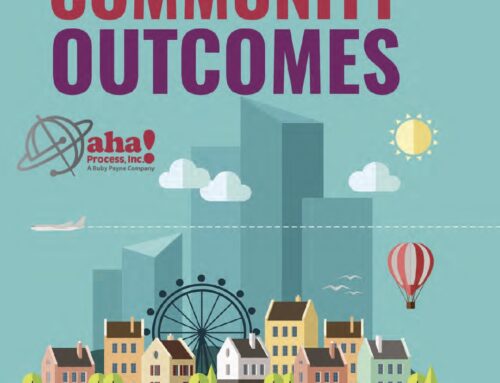 Where crime is a thriving industry, it is not a seasoned gangster or law enforcement officer but a wholesome lady who successfully developed the key to “not getting shot in the classroom.” The skill is increasingly necessary when mitigating the education of students “at risk” of graduating from victim to aggressor, and the commencement is playing out on campus. Dr. Ruby Payne is humorous, stylish, and likes fast cars, but she cannot shake her wholesome core or the core of her research reflecting that violence can be avoided by addressing emotional poverty prior to the need for metal detectors, mental health services, and before poor coping mechanisms become habitual.
Where crime is a thriving industry, it is not a seasoned gangster or law enforcement officer but a wholesome lady who successfully developed the key to “not getting shot in the classroom.” The skill is increasingly necessary when mitigating the education of students “at risk” of graduating from victim to aggressor, and the commencement is playing out on campus. Dr. Ruby Payne is humorous, stylish, and likes fast cars, but she cannot shake her wholesome core or the core of her research reflecting that violence can be avoided by addressing emotional poverty prior to the need for metal detectors, mental health services, and before poor coping mechanisms become habitual.
Self-soothing and self-correcting are skills that enable social learning without making us dependent or offensive to those around us. Self-correction is valued among middle class, achievement-based disciplinarians, while the need to self-soothe is generally limited to conversations regarding thumb-sucking. In reality, soothing and correcting are of equal merit in learning self-control. Ruby Payne models how to assist students in developing and recording a narrative regarding problematic behavior. This is just one tool developed by Dr. Payne to teach children the secret to self-correcting: how to learn from our own mistakes.
The applications of healthy self-soothing are not limited to keeping children from being disruptive; they are also for teachers to reset from stress resulting from disruptive children. Self-soothing is a physiological occurrence with impacts on everything from hormone levels to professional burnout. The unconvinced need only recall the feeling of coming home to a hug after a bad day at work. After enduring stressors, a hug can lower disease-causing cytokine levels in the blood with lifelong health impacts. Improved health is one built-in benefit of healthy relationships.
Due to risks posed by pathogens and predators, educational institutions are not intended to serve as primary affection suppliers, yet single parents working double hours simply have less cuddle time. I find myself in the same boat following my own education in pathogens and divorce from a predator. I am more likely to be willingly embraced by Bigfoot than my teenage boys, but routine affection is the gold standard in healthy self-soothing, so I searched for Plan-B, and romance was immediately ruled out. Professional massage is not fiscally possible.
When friends suggested a little lap dog for company, my middle class thinking immediately dismissed the idea based on finances. Owning a dog costs more than just puppy chow. I could not justify a veterinarian bill while I do not have insurance to cover my own medical bills. It was illogical.
Poverty thinking toward pets is different. When you cannot afford hope for a better tomorrow, make today the best it can possibly be. The middle class’s tendency to delay gratification in favor of building wealth does not apply in poverty where the gratification of financial security is not delayed but nonexistent. If a free Walmart parking lot puppy provides a subliminal boost in happy hormones, we take the dang puppy home. My middle class thinking considered this a tragic mistake, but I now realize impulse puppies are superior to impulse drugs, gambling, or infidelity as a method to self-soothe without risky side effects. Petting the puppy feels like meditation as the tactile process of stroking an animal offers more comfort than any fidget spinner can.
I was given a puppy. What I needed was a psychiatrist, so I named the Pomeranian Sigmund. When I discovered that Sigmund is as soothing as a spouse’s hug at the end of a bad day, I took him to work with me in a busy dental practice. When I placed him in the lap of a three-year-old in the dental chair, the child’s meltdown halted, and the dentist gained access to his mouth. Dog lovers exist in every social class, making pet therapists effective in helping people from all walks of life to self-soothe.








